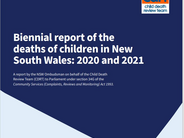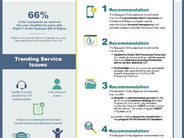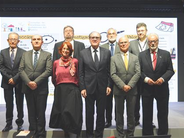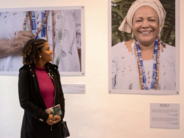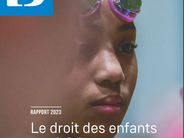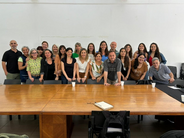Speech by the Council of Europe Commissioner for Human Rights, Dunja Mijatović, at the event organised by the German Institute for Human Rights (Deutsches Institute für Menschenrechte) and Evangelical Academy of Berlin (Evangelische Akademie zu Berlin) to mark the 75th Anniversary of the Universal Declaration of Human Rights.
Dear Beate, ladies and gentlemen,
It is a great pleasure for me to join you today to contribute to the discussion about the state of human rights in Europe 75 years after the Universal Declaration of Human Rights (UDHR).
When the UDHR was adopted, the human rights landscape in Europe was very different. The death penalty was commonly legal, and the aftermath of the Second World War left hundreds of thousands of people awaiting repatriation or resettlement. At that time, countless refugees were fleeing across the Iron Curtain, homosexuality was still criminalised and women had not yet gained the right to vote in many countries.
Today, the edifice of human rights is home to many more people, freed from oppression and poverty and empowered to live the lives they want. However, the construction of this building, remarkable as it is, remains incomplete.
Current challenges
Several challenges have opened serious cracks. A disturbing trend I have observed in many member states is that human rights are not only being violated in practice, but their fundamental legitimacy is increasingly questioned – and sometimes actively undermined.
Along with a failure by states to address structural problems that lead to the violation of human rights we are increasingly witnessing a trend of disregard for the fundamental principles of international human rights law. This situation represents not merely a departure from legal obligations, but a worrying shift away from the core principles that have long been the bedrock of our collective human dignity and international cooperation.
If left unaddressed it may lead us down a dangerous path. Russia’s illegal and brutal war against Ukraine is a tragic cautionary tale of what can happen when a state defies international law, ignores human rights standards and undermines established rules for the maintenance of international peace.
This is an extreme case, of course. However, there are signs of challenges to the most basic human rights standards of our Organisation in several member states.
During my tenure as Council of Europe's Commissioner for Human Rights, I have warned member states about the steady erosion of the rule of law. Governments are increasingly flouting court rulings and human rights obligations, undermining the independence, impartiality and authority of the judiciary. At the same time, legislative bodies are often reduced to mere figureheads, and national human rights structures and public media are weakened or captured.
The COVID-19 pandemic has accelerated this worrying trend. Many governments have circumvented established democratic procedures on grounds of managing a public health crisis and emergency powers. This has led to a significant disruption in the balance of power. Extraordinary measures adopted in response to the pandemic often involved derogations that bypassed legislative and judicial oversight, severely undermining the principles of democratic accountability.
In parallel, a growing indifference or even hostility to human rights is developing. A contributing factor to this, in my view, is the pervasive sense of frustration, uncertainty and insecurity felt by many in Europe. Such feeling is often fuelled by growing inequalities, perceived threats to cultural or national identities, and the prioritisation of corporate interests over the social and economic rights of the wider population. As a result, some people feel alienated from human rights, perceiving them as irrelevant to their daily lives or exclusive to certain groups.
These concerns are legitimate and require attention. However, some national authorities misinterpret this frustration as a call for diminished human rights and authoritarian governance.
Such responses are not only harmful. They actively dismantle key components of human rights protection, profoundly affecting millions of people.
Consider the situation of women in many European countries. They face widespread violence and a barrage of misogynistic rhetoric, both of which are symptomatic of deep-seated gender inequalities. In addition, women face significant barriers to exercising their sexual and reproductive health and rights. They are confronted with discrimination in many fields of life, not least at work, a reality highlighted by the persistent gender pay gap throughout Europe.
These challenges are reinforced by anti-gender movements that promote misleading narratives against women’s rights and gender equality and perpetuate harmful gender stereotypes about the roles of women and men in society.
This escalating climate of hostility is symptomatic of a wider problem of polarisation in society. A particularly stark manifestation of this is the widespread and intense intolerance faced by LGBTI people. They face a range of threats to their dignity, safety and fundamental freedoms. The existence of restrictions on freedom of assembly and association, obstacles to legal gender recognition, and the lack of adequate protection at public events are clear indicators of the failure of state authorities to fulfil their commitments and legal obligations with regard to LGBTI people.
Instead of addressing and resolving these critical issues, some politicians exacerbate the situation by manipulating them. They capitalise on and, in some cases, actively fuel this wave of intolerance. Key aspects such as the legal recognition of same-sex couples and their right to family life are being used as tools in this divisive strategy. This deepens the chasm of intolerance and discrimination against LGBTI people in society.
Another group of people who are increasingly denied the enjoyment of the principles of the UDHR are migrants, asylum seekers and refugees. Despite the existence of laws and standards protecting their rights, many European countries have resorted to increasingly restrictive policies and laws that disregard their human dignity and rights. Pushbacks, inadequate responses to the tragedy of people dying at sea, undignified reception conditions and restrictive family reunification are all examples of a race to the bottom in which many European countries are participating.
This race to the bottom has been characterised by an increasing political instrumentalisation of migration for electoral purposes, as well as the dehumanisation of those trying to make their way to Europe.
By now we should have learned that this dehumanisation only causes suffering. States around the world have built institutions to prevent or neutralise hatred, racism and extremism, in an attempt to give substance to the principles enshrined in the UDHR. Yet, the alarming resurgence of racism, antisemitism, and discrimination in Europe is a stark reminder that this attempt has only been partially successful.
The regular desecration of Jewish cemeteries, the rising tide of antisemitic hate crimes, including the targeting of Jewish families and businesses, the physical assaults on Jews and Jewish symbols are daily reminders that these undemocratic and illiberal forces are alive and well.
And they are not only targeting Jews. Muslims are also experiencing a significant deterioration in their social acceptance and safety, enduring assaults, vandalism of mosques, discrimination in employment and housing, and racial profiling.
The spill-over effect in Europe of the conflict in Gaza is clear, with attempts by some to legitimise and promote in this context prejudice, hatred and division. This is a decisive moment in which member states must show strong resolve to counter this spillover effect in our societies and demonstrate that hatred, violence and discrimination have no place in Europe. They also have the responsibility to ensure that responses to this situation respect our fundamental democratic values, including the rights to freedom of expression and peaceful assembly.
The picture of current challenges would not be complete without mentioning three other areas of concern that I have observed in my work.
The first is the deterioration of the safety and freedom of journalists and human rights defenders in a growing number of European countries.
Human rights defenders and journalists face a wide range of reprisals, such as judicial harassment, unfair prosecution and even illegal imprisonment. Their daily lives are disrupted by invasive searches, unwarranted surveillance and vicious smear campaigns. Intimidation and threats are rampant, and, in the worst cases, they have been physically harmed, abducted and some have even been killed. While the perpetrators are occasionally brought to justice, those who orchestrate these crimes often escape justice, thus fostering a climate of impunity that encourages further attacks. This situation perpetuates a vicious cycle of violence against human rights defenders and journalists that ultimately threatens democracy itself.
Another issue on which I have engaged with member states is the inadequate response they are giving to the profound impact of environmental degradation on human rights. Issues such as pollution, climate change and loss of biodiversity are not just environmental concerns. They are concrete, existential threats to human rights.
Regrettably, the response of member states falls far short of what is needed, as starkly illustrated by their approach to peaceful public protest. Citizens are increasingly calling for decisive action on climate change and environmental degradation. However, these legitimate demands are often met with repression. The use of heavy-handed police tactics and the criminalisation of peaceful activism undermines democratic principles, violates the rights to freedom of expression and of peaceful assembly, and exacerbates the human rights implications of environmental degradation.
The final challenge I would like to address today is the urgent need to regulate the development of digital technologies, in particular artificial intelligence (AI). The unchecked development of AI poses a formidable threat to a wide range of human rights and to the very fabric of democracy. We are facing a situation where AI could significantly undermine privacy, equality, freedom of expression and freedom of assembly, just to mention a few areas.
A particularly worrying aspect of AI is its ability to perpetuate and even exacerbate existing societal biases. Data-driven decision-making, while often perceived as neutral, can entrench pre-existing biases, leading to discriminatory outcomes. Furthermore, AI has the potential to spread misinformation and reinforce harmful stereotypes in ways that are subtle but profoundly impactful.
The urgency of establishing robust regulations for the design and application of AI cannot be overstated. Council of Europe member states have positive human rights obligations which entail the establishment of regulatory frameworks that effectively protect individuals from human rights violations, whether caused by private or public actors. This is a fundamental safeguard, particularly important in today’s highly technological world.
(...)




